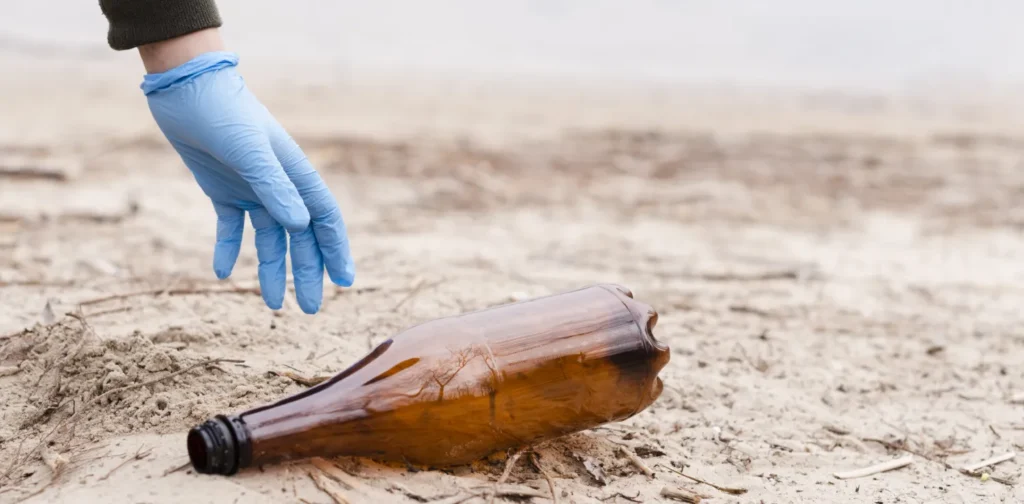Beach Cleanup Exchanges Plastic Trash for Rice in the Philippines

Photo by Freepik
Our planet is facing various challenges due to unsustainable human activities. One primary contributor is plastic pollution. Plastic waste ends up in our waterways, causing broader ecological and health impacts. In the Philippines, an initiative gathers locals to clean beaches from plastic pollution by offering an exchange of plastic trash for rice.
More Plastic, More Harm
Asia has the highest production and consumption of plastic in the world. The packaging sector accounts for around 36% of global plastic production, with 85% of plastic waste from single-use food and drink packaging ending up in landfills or polluting the environment. It is also worth noting that many Southeast Asian countries have been the recipients of illegal trash imports from developed countries.
At least around 1.7 million metric tons of plastic enter the oceans every year. They disrupt the balance of marine ecosystems by affecting the population and distribution of species. Over time, these plastics could slowly degrade underwater and turn into microplastics, plastic particles smaller than 5mm. Between microplastics and the harmful chemicals in plastics, plastic waste ends up contaminating our water, sea creatures, and the food chain.
Plastic Trash for Rice Program
Mabini is a coastal town in Batangas Province, the Philippines. It is celebrated for its marine biodiversity and colorful coral reefs. However, the region faces a persistent challenge: plastic pollution. Sea turtles often mistake plastic straws and bags for food, while fish ingest microplastics, threatening the health of aquatic life.
To help address this, a cleanup initiative invites locals for beach cleanups and exchanges the collected trash for rice. For every 1.5 kilograms of trash collected, volunteers receive 1 kilogram of rice. Since its launch two years ago, this trash-for-rice program has removed over 4.3 metric tons of waste from beaches and distributed 2.6 tons of rice in return.
The initiative is funded by private donors and small businesses. The program supports low-income families by easing their food expenses while actively reducing the amount of plastic waste at the beach. On average, local families can cut down to purchasing two sacks of rice each month.
Community-Driven Impact
The collective habit of plastic usage–especially single-use plastics–in our daily lives results in significant plastic pollution. While government regulations and responsible business practices are prioritized, individual contributions can also make an impact. Big changes sometimes need to start with small steps taken together by communities. Moreover, community-driven initiatives can be replicated and adapted to the unique conditions of each area.
Of course, grassroots initiatives that tackle local challenges must be supported with sufficient funding to ensure they become medium-term solutions. Acknowledging the shared responsibility in taking care of our environment is essential to end plastic pollution and create a lasting impact to safeguard the planet’s ecosystems and all creatures.
Editor: Nazalea Kusuma

Co-create positive impact for people and the planet.
Amidst today’s increasingly complex global challenges, equipping yourself, team, and communities with interdisciplinary and cross-sectoral insights on sustainability-related issues and sustainable development is no longer optional — it is a strategic necessity to stay ahead and stay relevant.
Dinda Rahmania
Dinda is an Assistant of International Partnerships at Green Network Asia. She holds a bachelor’s degree in International Relations from President University. As part of the GNA In-House Team, she supports the organization’s partnerships with international organizations, governments, businesses, and civil society worldwide through digital publications, events, capacity building, and research.


 Strengthening Resilience amid Growing Dependence on Space Infrastructure
Strengthening Resilience amid Growing Dependence on Space Infrastructure  Indian Gig Workers Push Back Against 10-Minute Delivery Service Strain
Indian Gig Workers Push Back Against 10-Minute Delivery Service Strain  Call for Governance: Grassroots Initiatives Look to Scale Efforts to Conserve Depleting Groundwater
Call for Governance: Grassroots Initiatives Look to Scale Efforts to Conserve Depleting Groundwater  Integrating Environment, Climate Change, and Sustainability Issues into Education Systems
Integrating Environment, Climate Change, and Sustainability Issues into Education Systems  Finally Enforced: Understanding the UN High Seas Treaty
Finally Enforced: Understanding the UN High Seas Treaty  Risks and Opportunities of Submarine Communication Cables for Sustainable Development
Risks and Opportunities of Submarine Communication Cables for Sustainable Development